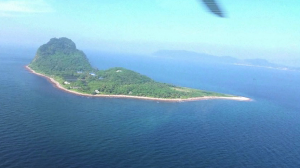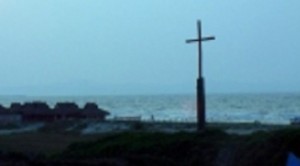MANILA, Philippines—Better safe than sorry.
The long wait for the peacekeepers in Caballo Island to be with their families will be over on Dec. 3.
But the Department of Health (DOH) on Friday admitted that the mandatory Ebola quarantine measures employed by the government were beyond the recommendations of the World Health Organization (WHO).
“The Philippines implemented the mandatory quarantine so we can monitor them. We cannot afford to have even one Ebola case,” DOH spokesperson Lyndon Lee Suy on Friday said in a press conference at the Holiday Inn Manila Galleria in Quezon City.
While the government recognized recommendations from experts like the WHO and the Center for Disease Control and Prevention (CDC), it took extra precautionary measures to ensure that the country is Ebola-free.
One of the reasons the health department implemented the mandatory quarantine is to ensure that the exposure of the Filipinos who came from Ebola-hit West Africa is confined to those who are quarantined with them, Lee Suy said.
Once the travelers or the overseas Filipino workers show symptoms of Ebola, there would be no need for the DOH to search the people they had contact with and investigate.
Philippine Society for Microbiology and Infectious Diseases (PSMID) president Ludovico Jurao Jr. said part of the Filipino custom upon arrival of an OFW is to have a family gathering—a “feast” with a lot of people.
If the OFW does not have fever, there would be no problem. “You are only infectious if you have symptoms,” Jurao said.
Ebola symptoms include fever, fatigue, muscle and joint pains, headache, vomiting, diarrhea, rash, bleeding from gums and skin, and blood in the stools and urine.
Jurao said, “Ebola is an evolving disease…We’ll be supporting the DOH by providing them with expertise and knowledge. We want an Ebola-free Philippines.”



